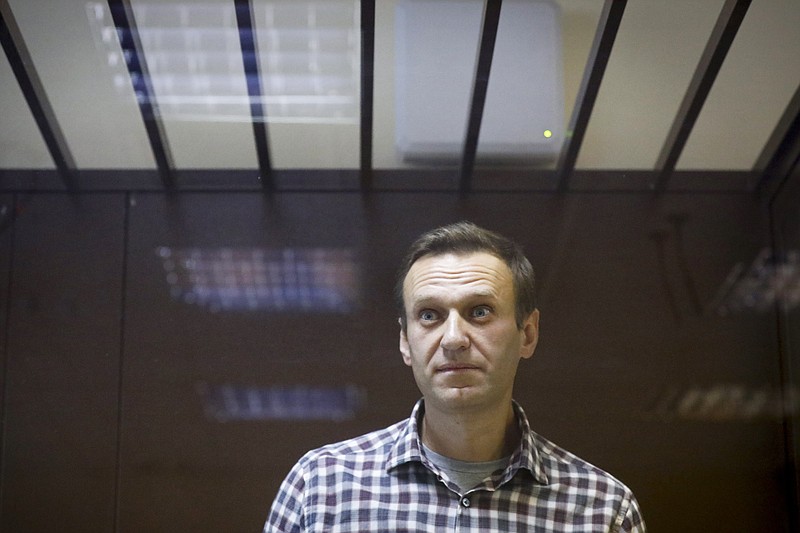MOSCOW -- Russian opposition leader Alexei Navalny, who is in the third week of a hunger strike while behind bars, was moved to a hospital in another prison after his doctor said he could be near death, his lawyer said Monday.
Navalny was transferred Sunday from a penal colony east of Moscow to a prison hospital in Vladimir, a city 110 miles east of the capital, lawyer Alexei Liptser said after visiting the politician Monday afternoon.
"Yesterday he was really unwell. ... Given the test results and the overall state of his health, it was decided to transfer him here. In the evening, he became significantly worse," Liptser said. While Navalny was able to meet with him Monday, he continued his hunger strike and "in general his look indicates he is really unwell," the lawyer added.
[Video not showing up above? Click here to watch » https://www.youtube.com/watch?v=kFadySC7prE]
Russia's state penitentiary service did not report the decision to transfer Navalny until Monday morning and a statement it released said he had agreed to take vitamin therapy.
Liptser said he didn't have enough time with his client to confirm that: "They were searching him ahead of our meeting longer than our meeting had lasted. He was outraged by this. Therefore we couldn't discuss anything, apart from what has happened to him."
The prison service statement said Navalny's condition was deemed "satisfactory." But the opposition leader's physician, Dr. Yaroslav Ashikhmin, said Saturday that test results provided by the family show Navalny has sharply elevated levels of potassium, which can bring on cardiac arrest, as well as heightened creatinine levels that indicate impaired kidney function.
"Our patient could die at any moment," he said in a Facebook post.
Reports about his rapidly declining health drew international outrage and calls urging Russian authorities to give adequate medical help to Navalny, who is President Vladimir Putin's fiercest opponent. European Union foreign ministers were assessing the bloc's strategy toward Russia in wake of the news.
White House press secretary Jen Psaki called for his release and said he "must be treated humanely," adding that U.S. National Security Adviser Jake Sullivan discussed Navalny with Nikolai Patrushev, head of the Russian Security Council.
"What happens to Mr. Navalny in the custody of the Russian government is the responsibility of the Russian government, and that they will be held accountable by the international community," she added.
Navalny was arrested in January upon his return from Germany, where he had spent five months recovering from a nerve agent poisoning he blames on the Kremlin -- an accusation Russian officials have rejected. His arrest triggered protests across Russia, the biggest show of defiance in recent years. Soon after, a court ordered him to serve 2½ years in prison on a 2014 embezzlement conviction that the European Court of Human Rights deemed to be "arbitrary and manifestly unreasonable."
Navalny began a hunger strike to protest the refusal to let his doctors visit when he began experiencing severe back pain and a loss of feeling in his legs. The penitentiary service has said Navalny was getting all the medical help he needed.
In response to the alarming news about Navalny's health, his team has called for a nationwide rally Wednesday, the same day that Putin is scheduled to deliver his annual state of the nation address. According to a website dedicated to the protests, demonstrations were being planned in 77 Russian cities as of Monday afternoon.
The Interior Ministry urged Russians not to take part in unauthorized rallies, citing coronavirus risks and alleging that some "destructive-minded" participants might provoke unrest. Kremlin spokesman Dmitry Peskov said police will treat any unauthorized protests as illegal. In the past, security forces have violently broken up demonstrations.




